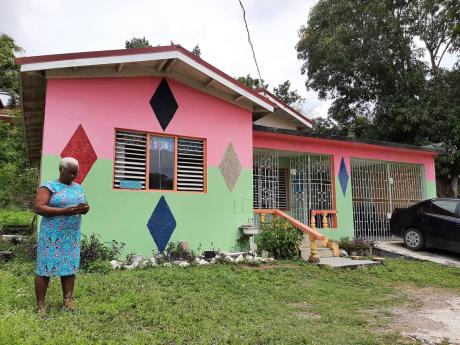Over 1,000 schools fail inspections
Some 1,056 of the 2,373 early childhood institutions (ECIs) across Jamaica are in need of substantial support from stakeholders to be certified, having earned below 50 per cent in their most recent inspections.
The infant schools and departments, which account for 44 per cent of all ECIs, scored grades as low as 15 per cent in the assessment.
The Early Childhood Commission, in its Assessment Report of Early Childhood Institutions March 2022, which will be launched today, explained that ECIs are not assessed based on academic criteria but against the 12 standards that illustrate an institution’s overall operational performance.
Further disaggregation of the data shows that 182 ECIs, representing eight per cent of the overall cohort, received inspection scores below 30 per cent.
All parishes, with the exception of Hanover, had schools scoring below 30 per cent.
Forty such ECIs are located in St Catherine, 33 in St Thomas, and 30 in St Andrew.
Manchester and Westmoreland followed closely behind Hanover, with only one institution in that category.
Twelve per cent (282) of ECIs earned full scores in the assessment.
Fifty-six ECIs attained 85-99 per cent, while another 609 gained 70-84 per cent.
Further, 26 per cent, or 609 ECIs, received scores in the range of 50-69 per cent.
The ECC reported that the registration compliance rate among ECIs has seen significant improvement within the past year.
Overall delinquency moved from 140 ECIs, as of February 26, 2021, to 61 currently.
“Of that 140 ECIs, 24 were government-operated ECIs. Currently, only four government-operated ECIs are delinquent,” a section of the report read.
The report noted that 124 infant departments, which represent five per cent of ECIs, were not inspected.
“Due to the COVID-19 pandemic, the ECC was not able to assess some ECIs. Thus, these schools have been listed as not inspected. This is not an indictment of the school’s capacity and adherence to the 12 standards,” the report said.
Region One (Kingston and St Andrew) accounts for the most ECIs across the seven regions.
Early childhood institutions are inspected against the following 12 national standards: staffing; development and educational programmes; physical environment; interactions and relationships with children; indoor and outdoor equipment; health; nutrition; safety; child rights, child protection and equality; administration; finance; parent and stakeholder participation.
Analysis of the early childhood sector in the recent Jamaica Education Transformation Commission (JETC) report found that though enrolment rates are high, the quality of care and training is unsatisfactory.
“There is overall inadequate exposure to developmental and educational activities. Only a representative two of all socio-emotional activities evaluated for are included, and only 11 per cent of ECIs were rated as having adequate numbers of play material for the numbers of students present,” read a section of the report, which was launched in January.
Among the eight recommendations made by the Professor Orlando Patterson-led commission was the rationalisation of the provision of centre-based early childhood development services.
This process would include identifying ECIs within areas of poverty and prioritising them to meet ECC standards.
The JETC also suggested that a geographic analysis be done to determine the optimum number and location of ECIs relevant to population needs.
The commission also recommended that the Government accelerate the programme of creating infant departments within primary schools.

